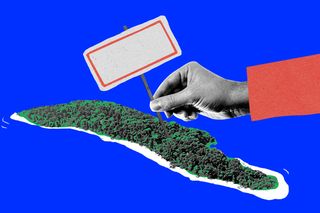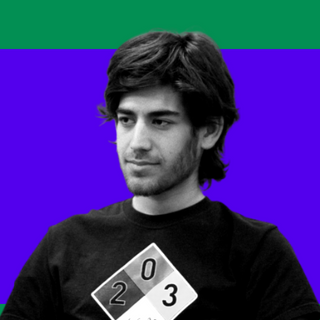
Some Andaman and Nicobar Islands Are Now Named After Military Heroes. This Undermines Both Local Culture and Military Lives
The bid to “unify” the country comes at the cost of erasing local, indigenous cultures — and glorifying the narrative of sacrifice.

As an everlasting tribute to India’s military heroes, Prime Minister Narendra Modi named the 21 largest unnamed islands of Andaman and Nicobar Islands after 21 Param Vir Chakra awardees yesterday, on the occasion of Netaji Subhas Chandra Bose’s birth anniversary. The christening is intended to put forth the message of “Ek Bharat Shreshtha Bharat” (One India, Best India), commemorating “the immortality of the sacrifices made for the country and the bravery and valor of the Indian Army.” In the jubilation of honoring war heroes, however, we risk losing sight of the cultural realities of the places bestowed with these names.
This isn’t the first time the present government has been involved in the christening of the island group. In 2018, the group’s most-visited islands were re-named during a visit by the PM — a move that was condemned for “obscure[ing] complex loyalties [and] horrific memories” by Aparna Vaidik, a historian. She wrote: “The irony is the more we rename, the more we erase; and what gets swept away is not the Mughal or the British master’s history, but our own past.”
What makes these christening endeavors jarring is that in the process of mainstreaming the island group by glorifying the sacrifices of national heroes, its own indigenous history and culture are often overshadowed. A place’s name speaks to its history and culture. In the islands, this is a crucial issue. 11 languages and dialects from the Andaman and Nicobar Islands — including Great Andamanese, Jarawa, Lamongse, Luro, Muot, Onge, Pu, Sanenyo, Sentilese, Shompen, and Takahanyilang — are currently considered endangered, while some others have already gone extinct. Given how deeply and inextricably a language ties to the identity and culture of its speakers, the loss of a language isn’t just that: it’s a loss of the entire knowledge system it was otherwise equipped to unlock.
As such, endeavors to keep the group’s local history and culture alive — if not the languages — can arguably be a better step towards a more unified India, which respects the individuality of its citizens, than one where mainstream culture is imposed on them with hardly any say in the matter.
Related on The Swaddle:
NITI Aayog Is Planning to Urbanize Little Andaman as a Rival to Hong Kong, Singapore
Furthermore, by coinciding with the ongoing debate surrounding the Great Nicobar Development Project, the naming also sidelines concerns over the local ecosystem. The Rs. 72,000-crore infrastructure plan to boost tourism, commerce, and defense in the region has already drawn flak as a “planned destruction of Adivasi culture and lives” by researchers, who believe its bid “to increase the population on the island by 4000%… will overwhelm the tiny [local] communities.”
Not only that, but the environmental impact of the project will also be immense, with lakhs of trees set to be felled, 12-20 hectares of mangrove cover likely to be lost, and about 10 hectares of coral cover, translocated.
Critiquing the move, and requesting President Droupadi Murmu to “immediately stop the commencement of destructive projects,” 87 former civil servants wrote, “[Replacing the] virgin forests of Great Nicobar with planted forests in Haryana would be laughable if it weren’t so tragic: 13,075 acres of rich, evergreen, rain forests teeming with extraordinary flora and fauna species to be compensated with newly planted trees in the dry Aravalli hills of Haryana.” They believe the project is on course to “destroy one of the most pristine habitats in the country.”
Naming the islands after national heroes carries the implicit notion that sacrifices are necessary for the greater good. It then allows top-down approaches to development in the island, remaining unquestioned.
Related on The Swaddle:
Why Are Dharavi’s Residents Protesting Adani’s Redevelopment Plan?
Moreover, framing military sacrifice as a formula for peace and unity has drawn censure, in the past. In 2000, historian Omer Bartov had written that “years of fear and atrocity, killing and mutilation [is] a treacherous foundation for peace.” At present, it brings into question the message of “Ek Bharat Shreshtha Bharat.”
“Since commemoration is more about instilling the past with sense and purpose than with simply remembering it, the official remembrance of millions of fallen young men could not help but provide the war, in which their lives were squandered, with a retrospective meaning for the benefit of the living… In giving war a unique moral significance, the fallen soldier can be presented as having sacrificed himself for a greater cause: death is glorified by the context in which it occurred, [and] abstract principles and entities are valued higher than individual lives,” Bartov noted. Individual soldiers, then, often end up “pay[ing] the price” for a culture that venerates and idealizes their sacrifice.
The island group has lately been getting mainstream attention — be it through the naming of its islands, or the proposal to give it a facelift through the Great Nicobar Development Project. However, what both the endeavors failed to take into account is one thing: preservation of the local culture, history, and the way of life of its residents. In the end, it’s indigenous lives that are likely to be altered by top-down decisions, while their own agency doesn’t appear to hold any value in the grand scheme of things.
Devrupa Rakshit is an Associate Editor at The Swaddle. She is a lawyer by education, a poet by accident, a painter by shaukh, and autistic by birth. You can find her on Instagram @devruparakshit.
Related


CNET Was Quietly Publishing AI‑Authored Articles
